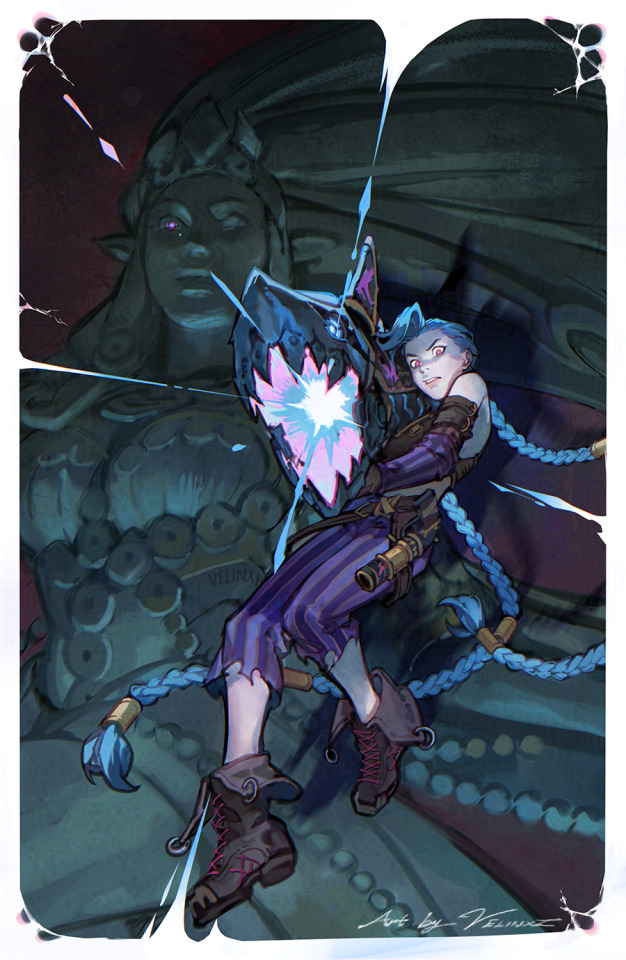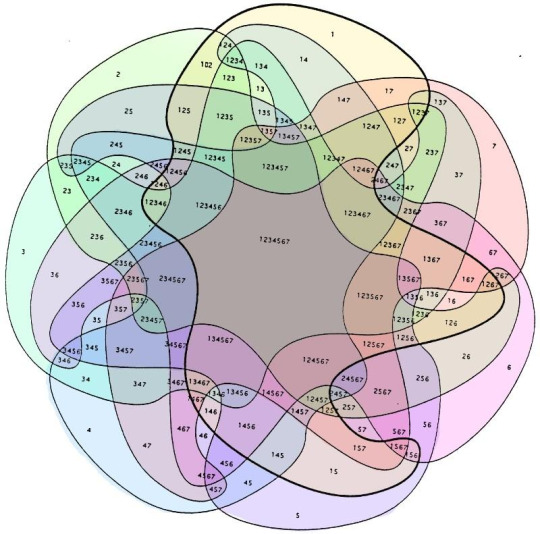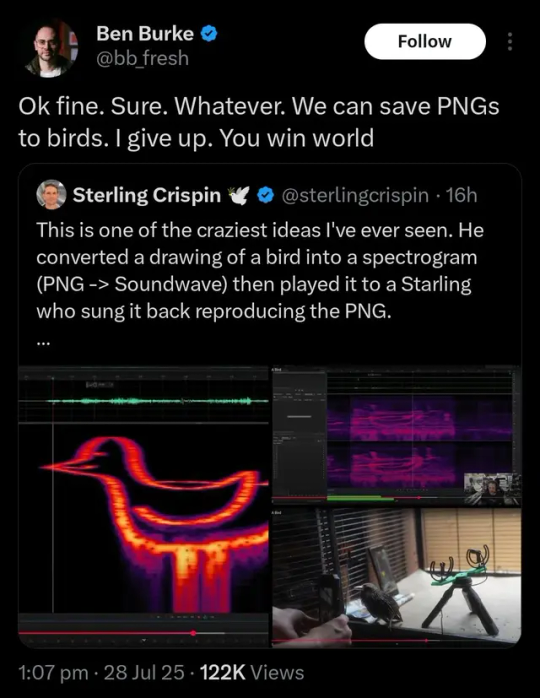Serial (queue) reblogger, Adult Zoomer, Multifandom and nerd (of to much things to list them at this point), Not really a Pallas cat, neither a rock
Don't wanna be here? Send us removal request.
Text

But I have nothing to fear! For the blue bird is with me.
56K notes
·
View notes
Text
Currently looking into relics in Catholicism and it's so interesting and like vaguely horrifying
8K notes
·
View notes
Text
laughing at the entire conceit of live action httyd being "animation is for babies so we HAVE to remake this shot-for-shot in live action" but also they need to sell a new wave of plushies at universal studios orlando so toothless still looks like a fucking cartoon character

15K notes
·
View notes
Text
One of the stranger things about training brand new nurses is explaining how to min max small talk. It feels very weird to coach people on how to chat.
51K notes
·
View notes
Text

SCIENTISTS UNCOVER A NEW SPECIES OF MANTA RAY IN THE ATLANTIC OCEAN
For over fifteen years, scientists suspected that a mysterious species of manta ray was hiding in plain sight in the Atlantic Ocean. Often confused with its close relatives, the oceanic manta ray and reef manta ray, this elusive animal was finally confirmed and formally described as a new species: Mobula yarae. Through a careful combination of genetic studies and physical comparisons, researchers showed that this species forms a distinct evolutionary lineage. It has unique features, including a striking V-shaped mark behind its gills, a special kind of skin denticle shaped like a star, and a small residual spine embedded near its tail. These traits, along with its DNA, make it unmistakably different from other known manta rays.
The newly Atlantic Manta Ray Mobula yarae lives only in the Atlantic coast of the Americas, and seems to prefer warm coastal and estuarine waters. Juveniles have been spotted along the Amazon coast, in Florida, and around the oceanic islands of Brazil. Adults, on the other hand, are more common around the Yucatán Peninsula and the southeastern United States. Sadly, this new species is already facing serious threats. It is often caught by accident in fishing gear, hit by boats, tangled in lines, and exposed to growing coastal pollution. These dangers are made worse by the fact that Mobula yarae looks so much like other manta rays, making it difficult to protect unless it is properly identified.

-Distinct colouration of manta ray species. Dorsal and ventral colouration pattern of Mobula birostris a, d, Mobula alfredi b, e, and Mobula yarae c and f.
The name yarae comes from Yara, a mythical figure from the Indigenous Tupi and Guaraní cultures. Yara is known as the mother of the waters, a powerful spirit of beauty and protection. Naming this ray after her is both a tribute and a call to action. The formal recognition of Mobula yarae opens the door for targeted conservation efforts. With its unique traits, restricted Atlantic distribution, and vulnerability to multiple human pressures, this species qualifies for urgent assessment under international and national conservation frameworks. Ensuring accurate identification and monitoring will be essential to prevent further decline and to secure the long-term survival of this newly described manta ray.
Photographs: Sean Rowan Laughlin
Reference: Bucair et al. 2025. An integrative taxonomy investigation unravels a cryptic species of Mobula Rafinesque, 1810 (Mobulidae, Myliobatiformes), from the Atlantic Ocean. Environ Biol Fish
1K notes
·
View notes
Text
what annoys me about explaining evolution to people who don’t think it’s real is that everyone’s idea of how it works seems to be from this

Whereas the reality is far more like

73K notes
·
View notes
Text
whys combat and military gear always got to look so fucking cool when the people wearing them just objectively arent. thats unfair
160K notes
·
View notes
Text
having adhd makes all of your thoughts feel like a 7-way venn diagram

92K notes
·
View notes
Text
326K notes
·
View notes









